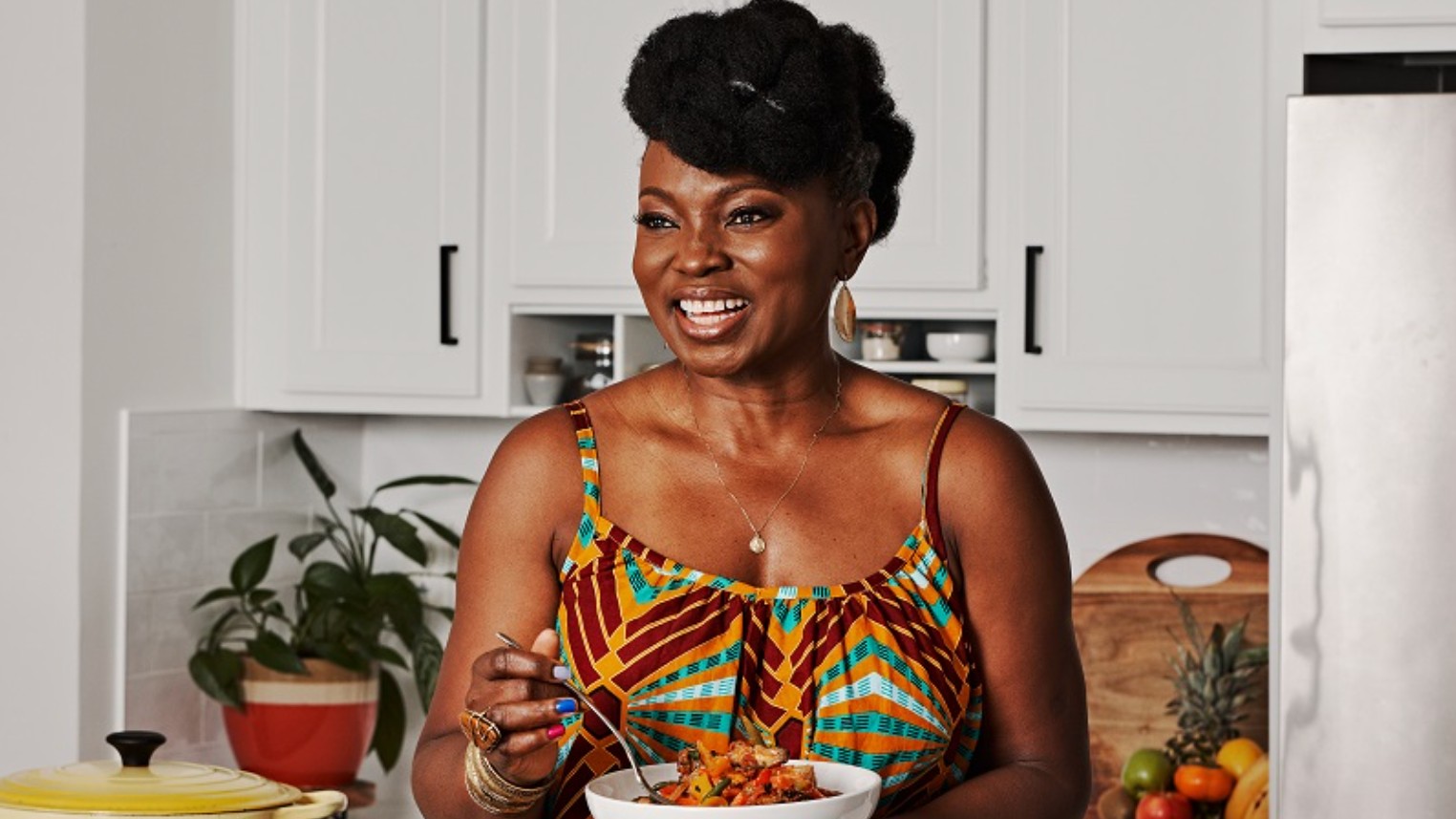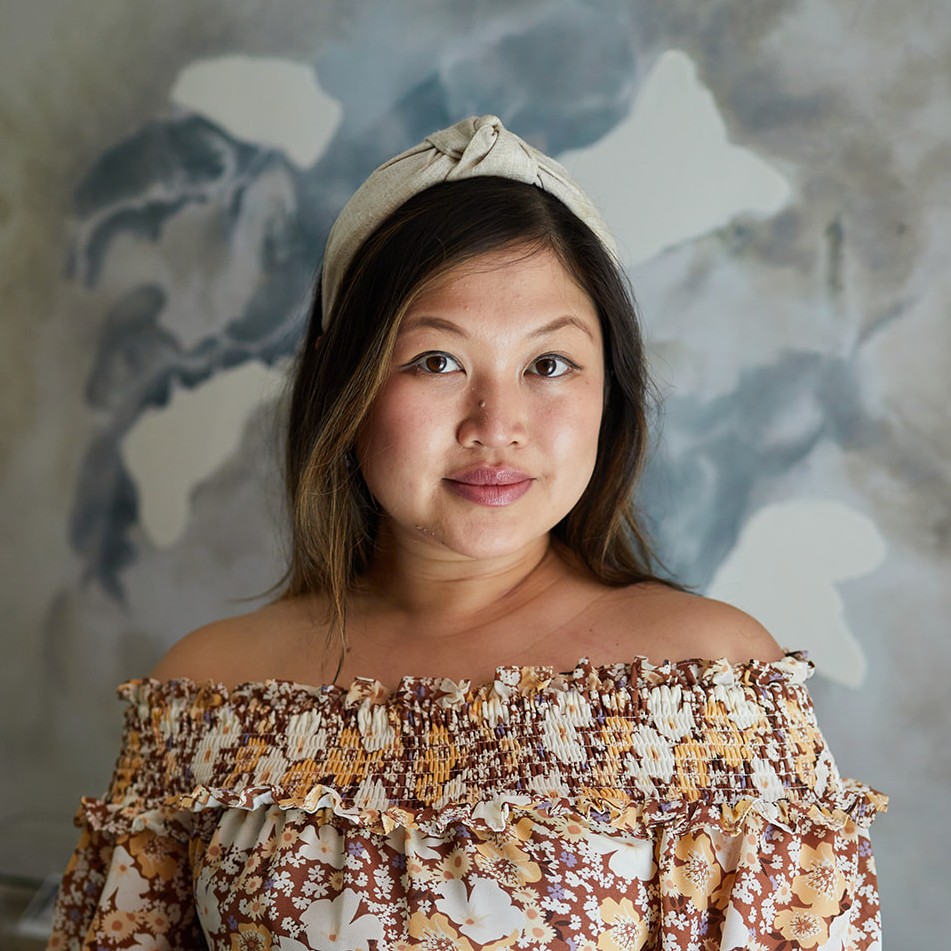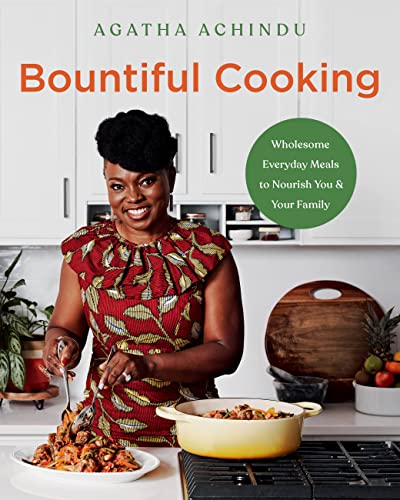What It Means to Agatha Achindu to Be a "Wellness Architect"
The founder of Yummy Spoonfuls explains how she is scaling her several nutrition ventures to spread a single message: 'organic, fresh food is not just for the elite, it's for everyone.'


When Agatha Achindu first immigrated to the United States to attend college, she simply couldn’t buy into the aisles of canned foods in the grocery stores. Having grown up on her parents’ farm in Cameroon, West Africa, she was used to her family huddling into the kitchen to turn their farm-fresh produce into plates of comfort meals. She brought this tradition to her campus. At first she would cook organic meals for her close friends, then began hosting community dinners for up to 50 fellow classmates.
After graduating she landed a six-figure job as an IT executive where she worked for about two decades. But in 2006, she walked away.
These days, if you ask Achinda how her wellness business is doing, she’ll cheerfully respond with “Which one?” After ditching her tech career to become an integrative nutritionist and chef, she created Life Unprocessed, a series of cooking workshops to help local families in Atlanta (where she now lives with her husband and youngest son) bring healthy lifestyle choices into their own homes. Then a year later, she launched Yummy Spoonfuls, a line of organic toddler foods that is now available at Walmart, Target, and Whole Foods. She now considers her new cookbook, Bountiful Cooking, her latest venture, as it’s another platform for transforming kitchens across the country.
She says layering together these products and services–as well as embarking on political advocacy efforts that have led her to present at Capitol Hill–is what makes her not just a health coach, but a “wellness architect.” Here, Achindu shares how she built a career dedicated to helping families live life unprocessed, and eat flavorful, nutrient‑dense foods that can help prevent chronic diseases that are plaguing us. She even gives us a behind-the-scenes of how she brought her healthy bites to big-box stores across the country. Last, she wants people of all backgrounds to discover that Africa, too, has its own nutrition culture, and delivers numerous benefits that is lacking in the standard American diet.
MC: Tell us about how you started Yummy Spoonfuls Organics.
Agatha Achindu: I worked as an IT executive and life was good. But I wanted to make a difference in my community. I started hosting cooking workshops on the weekends but I never planned on going into business. Word spread and local hospitals and organizations with mommy and me classes began inviting me to teach. People would ask me ‘What is your brand called?’ I’d answer ‘I don’t have one, I’m just a frustrated mom trying to make a difference.’ But eventually I branded it as Life Unprocessed.
It grew into a following of 45,000 moms via email alone. This was before Facebook. I noticed the same moms would come back even if it was to learn the same recipes over and over because of the community but also because it was convenient to dedicate this time to cooking. But my kitchen and my house got packed. It came to a point where my husband feared we were going to get in trouble with our subdivision for having so many people over.
Get exclusive access to fashion and beauty trends, hot-off-the-press celebrity news, and more.
So in 2006 I launched Yummy Spoonfuls to make the same food I’ve been teaching at these workshops. Meals without preservatives and artificial flavors.
MC: What made Yummy Spoonfuls so disruptive compared to other legacy brands in the baby food aisles?
AA: They are cooked and frozen because freezing is the oldest method of preserving food. I did all my paperwork, and pitched it to the regional market buyer for Whole Foods at the time who happened to have an eight-month-old baby. It was a sweet potato and broccoli blend and she screamed with joy. The VP of Whole Foods happened to be there and she asked him to taste it. He thought it was an Italian ice because it was so sweet and delicious. She told him, “No it’s baby food!”
I literally didn’t have to do my presentation. Today we are also in Target and Walmart. We sell flash-frozen veggie, grain and protein bowls and bites with no sugars, preservatives, additives, or artificial ingredients ever added. It was the first-ever USDA-certified organic line of toddler foods that the other legacy brands never aimed to feed children.
Organic fresh food is not just for the elite, it's for everyone.
Agatha Achindu
We got to a point where in 2015 we were trying to raise money because we just couldn’t make food fast enough. In 2016 we got into a partnership with a parent company called Juggernaut, and I maintain a minority stake in the company.
MC: Do you still run Life Unprocessed, even after all the success with Yummy Spoonfuls?
AA: Yes, it is not a tangible product but I still work with families to change lifestyle choices. It’s an extension of who I am. We live in a society where unfortunately the way we eat and the way we live causes so much disease. The CDC and World Health Organization listed the top causes of death and seven of the 10 are attributed to diet and lifestyle. Type-2 diabetes used to be called adult onset diabetes but it’s visible in children today as young as two. With Life Unprocessed, I am breaking that cycle of poverty. The next generation doesn’t have to adopt these lifestyles and through better nutritional choices they can find a clear path to sustainable health. I still do consult families today. Part of why I wrote Bountiful Cooking is to bring the same recipes and spirit of my Life Unprocessed workshops to anyone’s home.
I have had clients who have flown me from Atlanta to Phoenix or Los Angeles just to work with me for a few hours. I’ve been so grateful. I pay it forward by teaching at a low-income neighborhood in the same city for free.

MC: What’s the best way to bring change to our food economy and support family nutrition?
AA: By voting! When we think about politics, it’s always the big stuff like the presidential elections and people don’t realize that food is politics and it starts at the local level. We have to put people in office who share this value that organic fresh food is not just for the elite, it's for everyone.
What the market subsidizes depends on who we put in office. It is the reason we can buy a McDonald’s hamburger for cheaper than a bowl of salad. So voting on the local level is so important. I have gone all the way to present to Congress for the “Plate of the Union” on this issue.
MC: You call yourself a wellness architect. What does that mean, exactly?
AA: There is so much more to holistic health. It’s not just exercise and diet, it's how we sleep, the relationships we keep, and types of pots and pans we use, and the environmental toxins we keep out. I consider myself an architect because I am building a whole person. It doesn't matter if you drink green juice with kale and broccoli everday; if your mind isn’t right you will not find sustainable health.
I’m a wellness architect because, look at me, I am not airbrushed. I am truly what I eat. I am 56 and never had a cavity. At my age I never had a hot flash. Society and patriarchal medicine has led us to believe these symptoms are normal and inevitable. So we as mothers have to look back to matrilineal cooking, and say 'let me see how I can change this narrative through nutrition, so my daughter does not have to suffer.'
MC: Why is it important to share your Cameroon and Nigerian roots with American mothers?
AA: I once shared a post about a traditional breakfast snack food common in most African countries; it has a lot of different names but in Nigeria it is called puff puff. It’s plain sugar, yeast and flour. In America we are convinced this standard American diet is better but American doughnuts are packed with at least 12 ingredients, while this puff puff has only three. It’s much cleaner and can be made from scratch. Let us return to the foods we came from which are more nutritious and more wholesome. The human body has the capacity to heal when provided the nourishment it needs.

Tanya Benedicto Klich is Senior Editor at Marie Claire where she manages the Money & Career section. Over the course of her 10+ years as a journalist she has overseen the coverage of female founders, funders, executives, innovators and more. Tanya was previously a Lifestyle Reporter for Forbes, where she worked at the ForbesWomen and Forbes Lifestyle verticals. She was also a Features Editor at Entrepreneur Magazine, and a former on-air reporter for NY1 News. Tanya is also a graduate of Columbia University Graduate School of Journalism where she specialized in business & economic journalism, and is an adjunct professor at the NYU Arthur L. Carter Journalism Institute. She lives in Brooklyn with her husband and two little sons. Follow her on Twitter: @TanyaKlich
